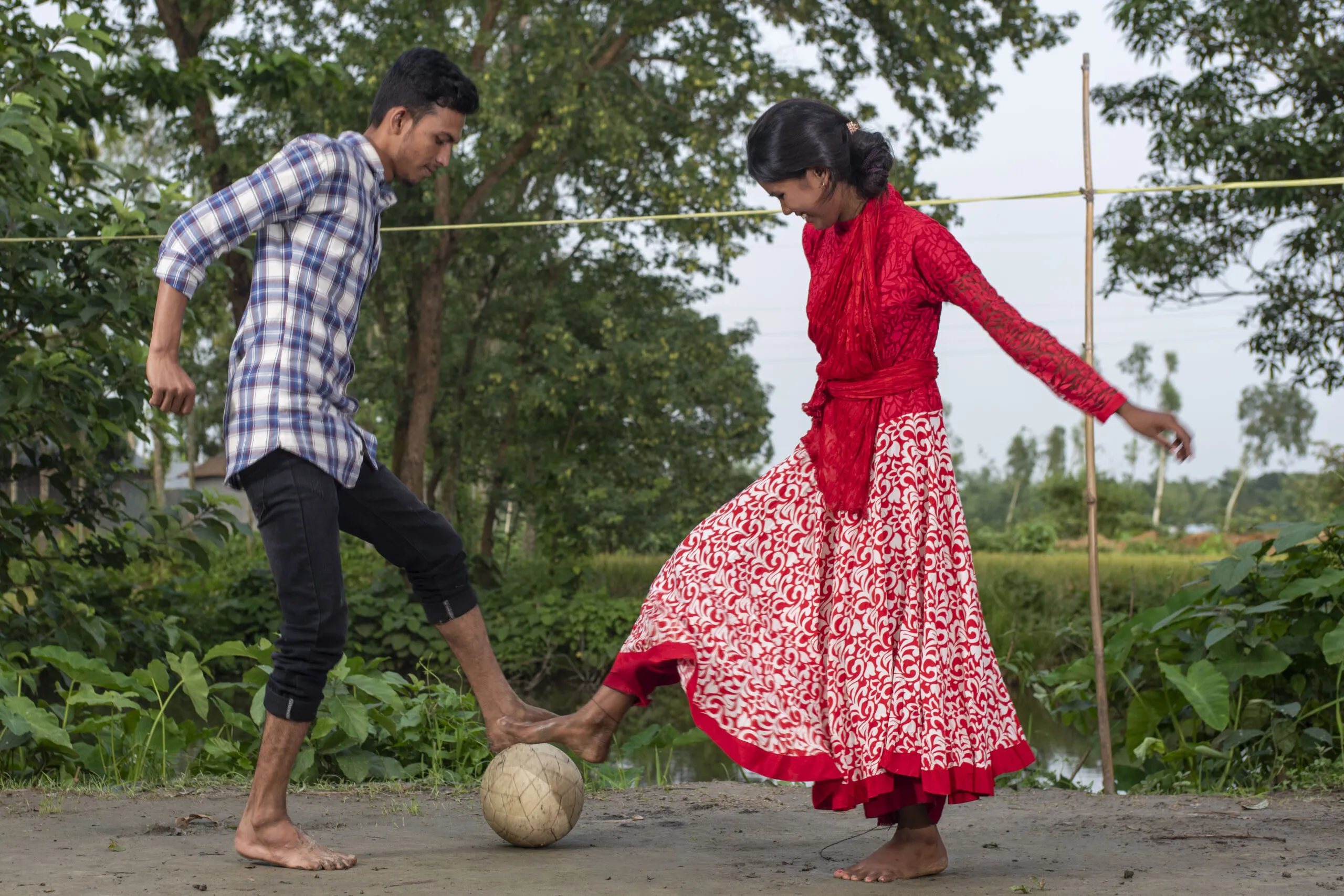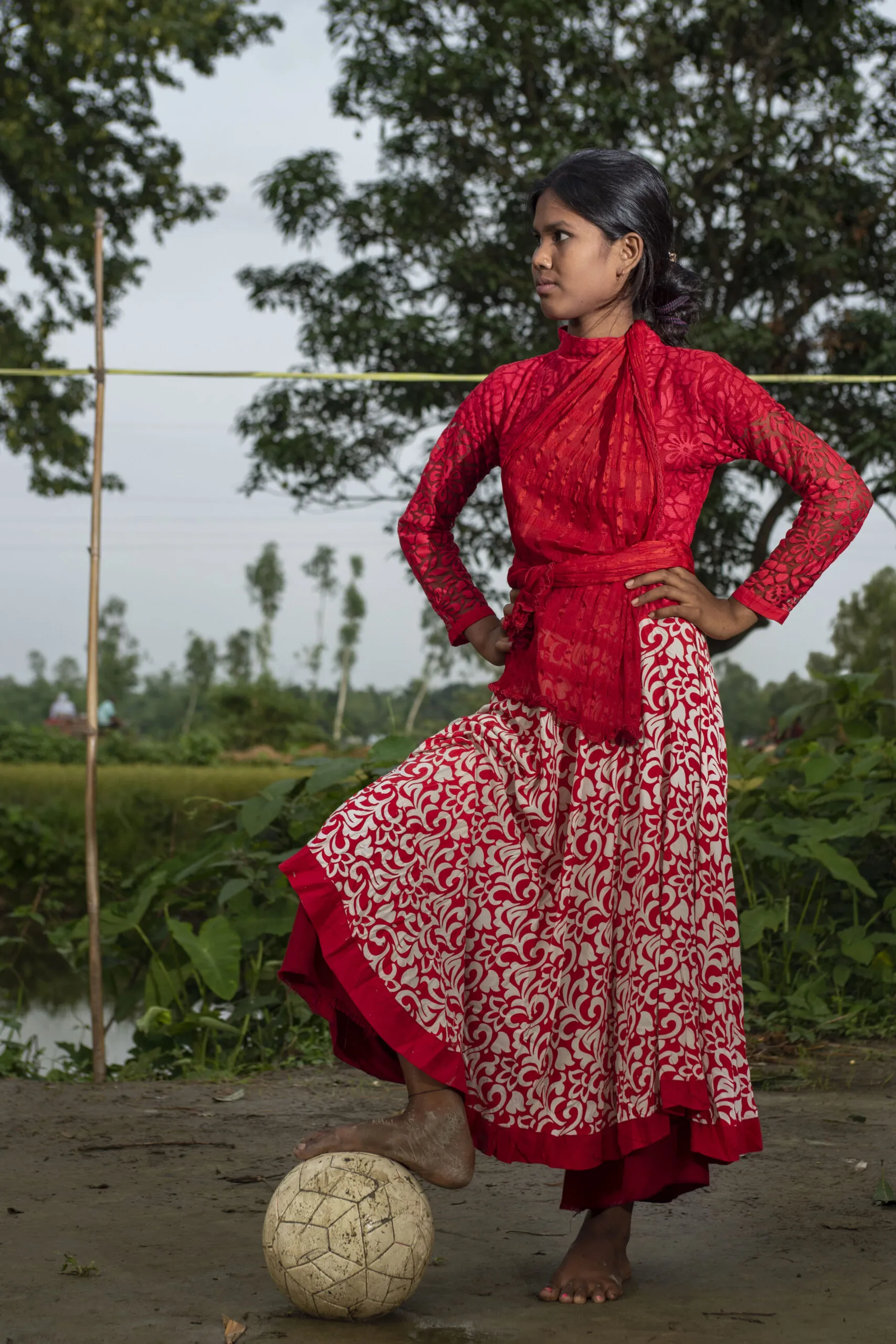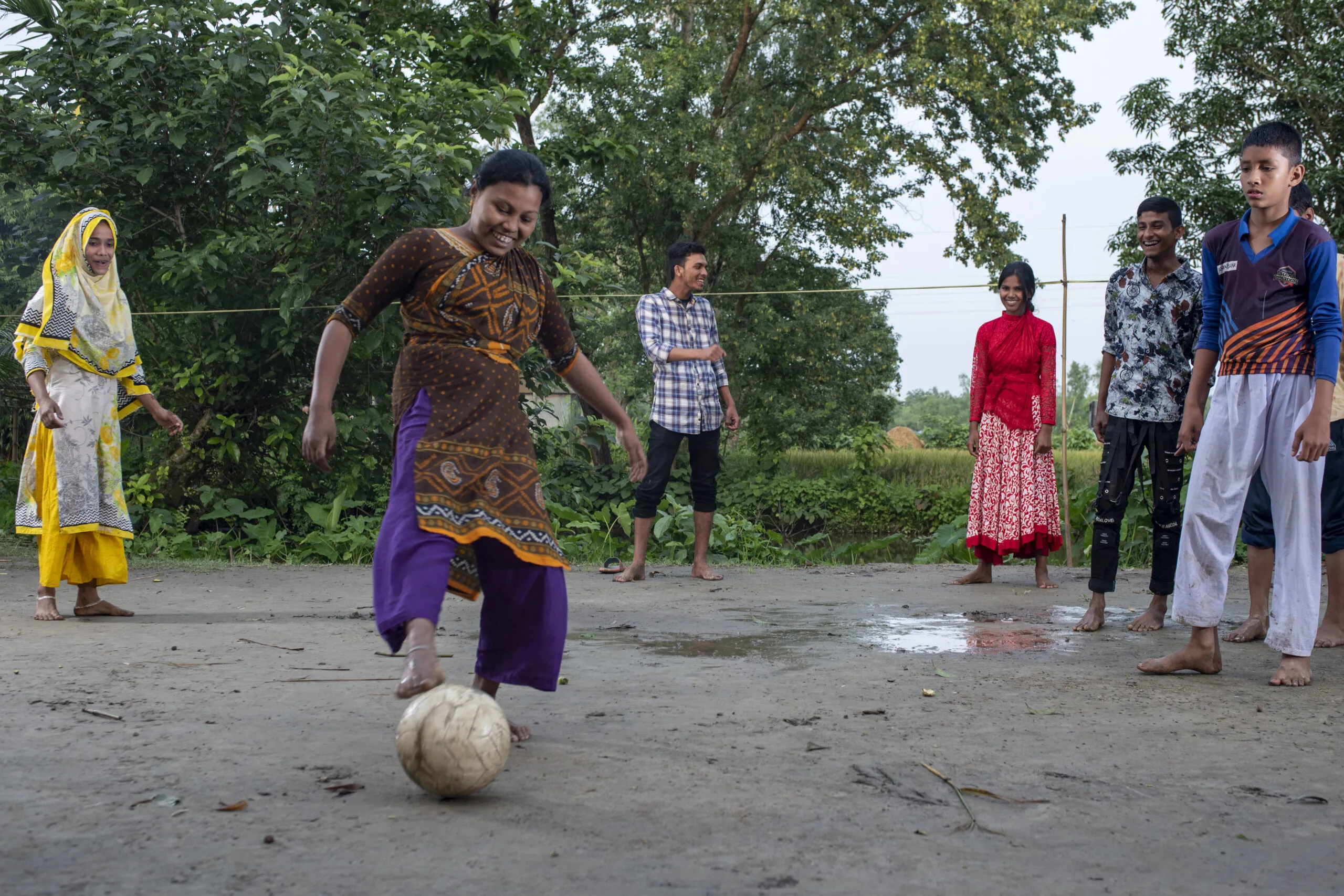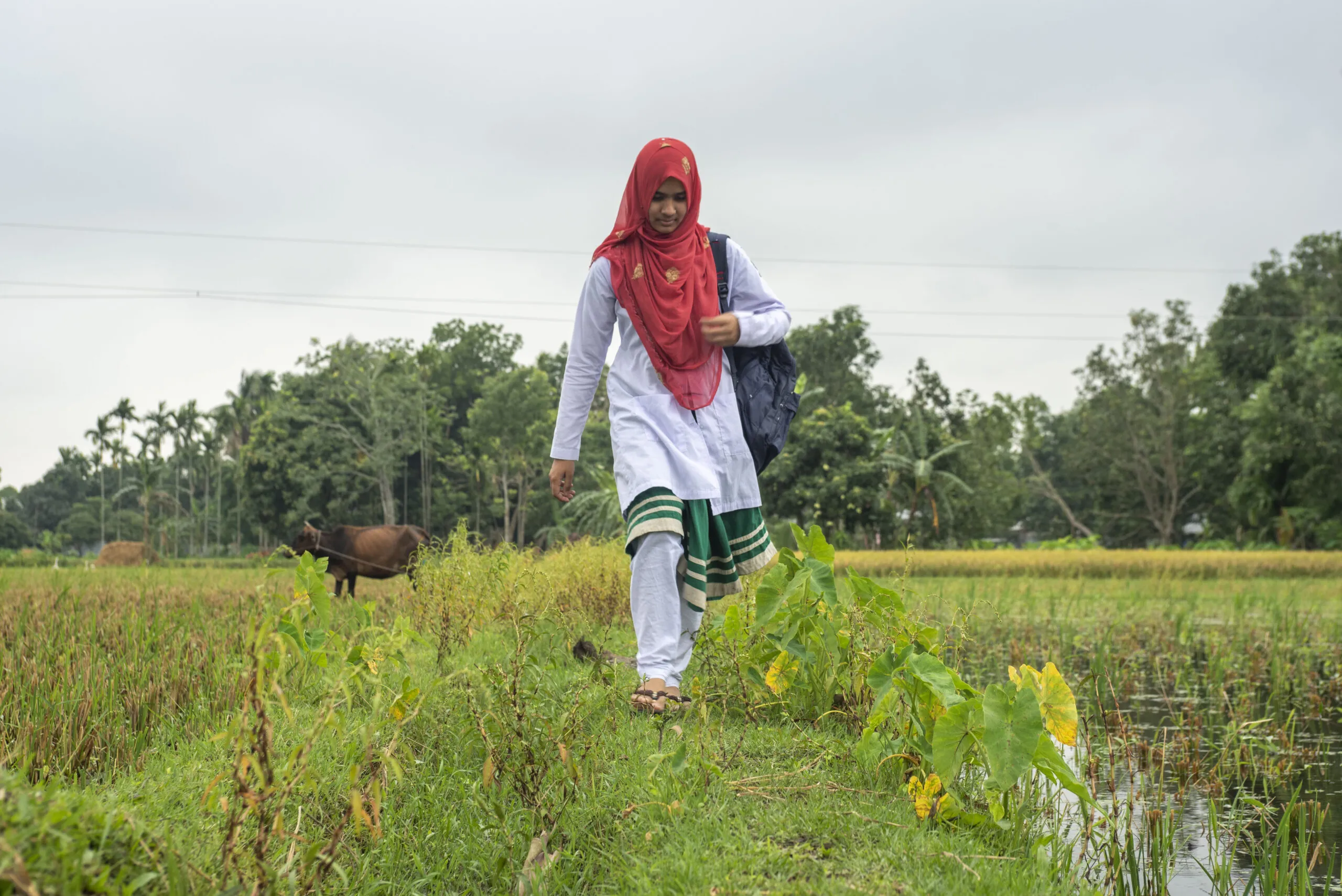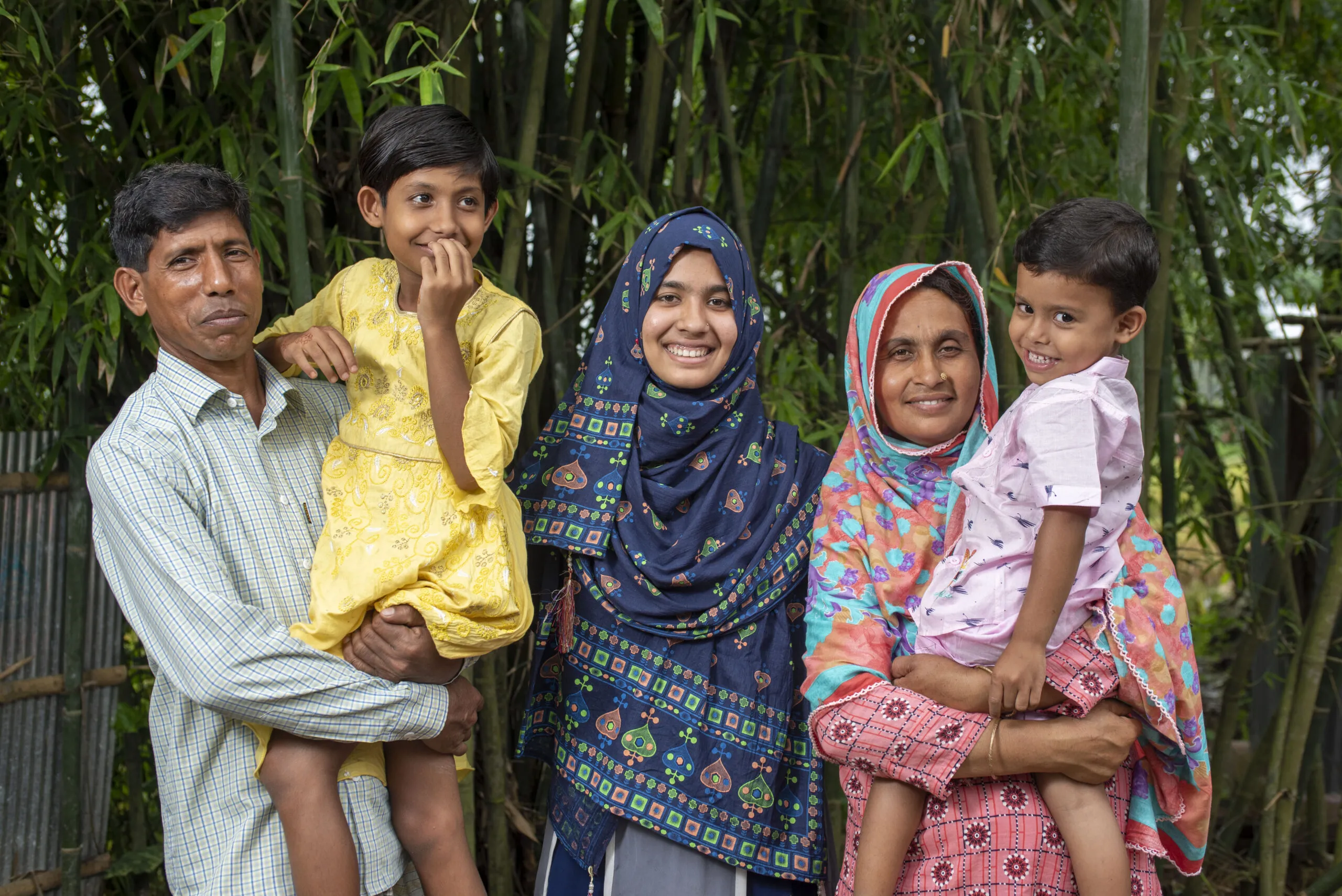She didn’t dare to dream of playing soccer professionally, though, dazzling crowds under stadium lights on a world stage — Anannya simply wanted to go outside in her small village in northwestern Bangladesh and kick a soccer ball around with her friends.
But she couldn’t.
As a girl in Pirgacha, she says it was “unthinkable” for her to play a game that millions of girls and boys around the world play every day.
“Girls wanted to play sports,” Anannya says, “but we weren’t allowed to participate in outdoor games.”
Deeply entrenched cultural norms and religious beliefs about what girls can —and can’t — do has shaped the lives of young people growing up in Pirgacha for generations.
Often, these norms drive girls Anannya’s age into enforced marriages, agreed upon by families or outside parties, without the girls’ consent or opinion.

